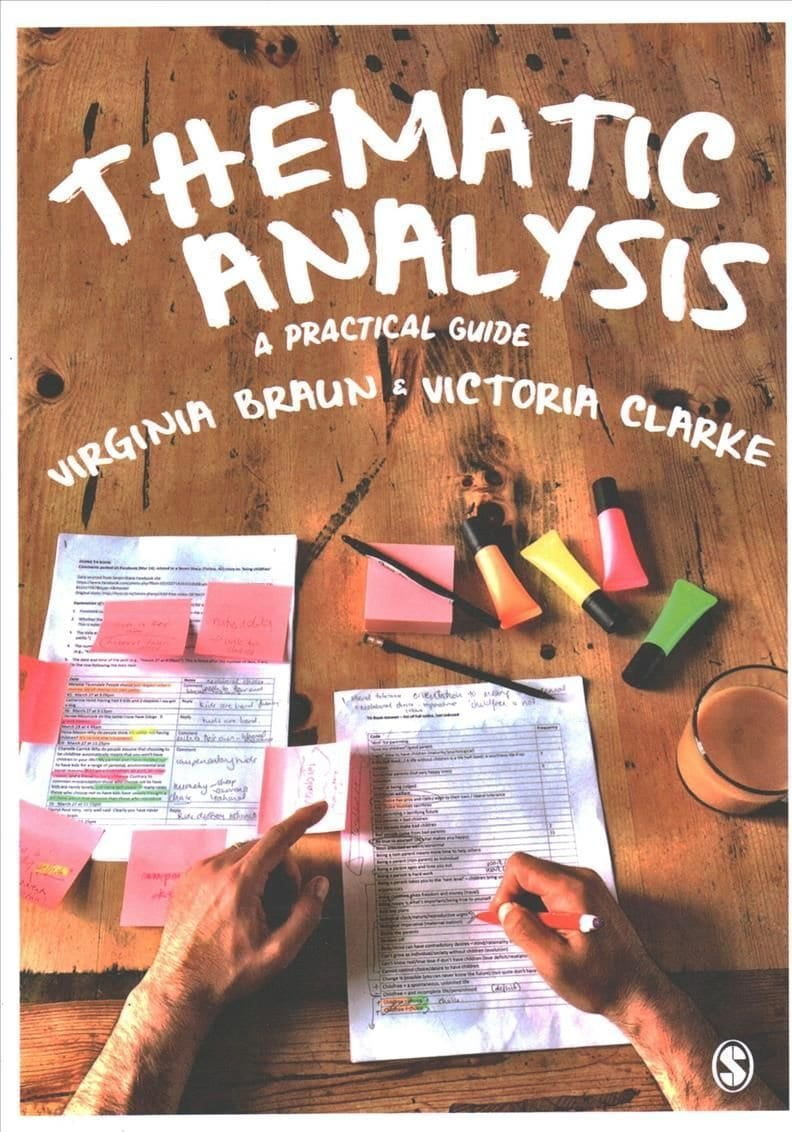
Thematic Analysis
Hello and welcome to thematic analysis! Thematic analysis (TA) refers to a range of qualitative research methods that are used for exploring and interpreting patterned meaning across datasets.
Why should you care what we have to say about thematic analysis? We are Virginia Braun and Victoria Clarke, psychology academics at Waipapa Taumata Rau The University of Auckland (Ginny) and the University of the West of England (UWE; Victoria). From 2006, we have been developing a method for, writing about, and teaching and supervising TA. Our original 2006 article on the method was recently identified by Nature as the 3rd most cited article of the 21st Century – and (in an update of a 2014 analysis they did) the 9th most cited article of all time. You can read about our journey with TA in this reflexive conversation with Nikki Hayfield, and a 2021 interview in The Psychologist with Astrid Coxon.
We now call our widely-cited approach reflexive TA, reflecting that foregrounds researcher subjectivity and reflexivity. Our 2022 textbook Thematic Analysis: A Practical Guide (Sage) – and its extensive open-access companion website which contains additional resources – offers the most comprehensive account of our thinking and guidance around TA – at the time of writing. We are delighted that it has been very positively reviewed (for instance, in the Qualitative Methods in Psychology Bulletin – free to access if you’re a member – and Qualitative Social Work; you can find various reviews and commentaries here), and that it was the recipient of the British Psychological Society Book Award *Textbook Category* for 2022, where the panel described it as “an extremely clear and comprehensive guide” and “a core text for the future”.
This site offers content beyond the book, including newer thinking! It will help you understand, do, and also teach and supervise thematic analysis, and it is loaded with resources, answers to a whole lot of questions, and information related to the very important question of quality! Inevitably, it’s oriented towards reflexive TA, but there are links and resources for different approaches, should those be more suited to your particular study or context.
We hope you enjoy exploring this site, and we hope you love doing TA!

Thanks to Dr Katrina Pritchard at Swansea, we have a QR code for our TA website – if you want to use or share in talks, teaching, etc, please do.
